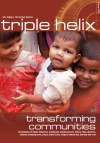Litigation is a terribly dangerous business. The Leslie Burke debacle [1] is a sad illustration. It has provided some splendid headlines for the pro-euthanasia lobby and ripped away one of the main legal safeguards against irresponsible end-of-life decision-making by doctors.
Leslie Burke has cerebellar ataxia. He will ultimately need artificial nutrition and hydration (ANH). When he does, he will be legally competent. He was concerned that the General Medical Council's (GMC) guidelines [2] did not make it sufficiently clear that his clinicians had an obligation to give him this basic care if he wanted it. He was worried that he might be deprived of ANH. He brought judicial review proceedings, contending that the GMC's guidelines did not represent the law.
This was wholly unnecessary litigation. Both Munby J, the High Court judge who first heard the case, and also later the Court of Appeal, noted that it was old and trite law that once a patient is accepted into a hospital the medical staff come under a positive duty at common law to care for the patient. A fundamental and unsurprising part of that duty is a duty to take reasonable steps to keep the patient alive. It is true that the GMC's guidelines are not models of elegant drafting, but no sane doctor has ever or could ever have read them as questioning this basic principle. Of course there are difficulties in deciding the ambit of a doctor's duty where the patient is incompetent: then the whole question arises of where the 'best interests' of the patient lie. But in Leslie Burke's case there was no such difficulty. The Court of Appeal made it clear that doctors must already honour the wishes of competent patients who wish to be kept alive:
'no authority lends the slightest countenance to the suggestion that the duty on the doctors to take reasonable steps to keep the patient alive….may not persist. Indeed it seems to us that for a doctor deliberately to interrupt life-prolonging treatment in the face of a competent patient's expressed wish to be kept alive, with the intention of thereby terminating the patient's life, would leave the doctor with no answer to a charge of murder.'
So it is rather odd that Leslie Burke went to the law in the first place. It is even more strange that he went, as he did, brandishing his autonomy rights. For autonomy, crucial though it is in its place, has a way of metastasising nastily from where it is helpful to where it is deadly. At first instance the predictable happened – Munby J sang an eloquent hymn to autonomy:
'…The personal autonomy which is protected by Article 8 embraces such matters as how one chooses to pass the closing days and moments of one's life and how one manages one's death….The dignity interests protected by the Convention include, under Article 8, the preservation of mental stability and, under Article 3, the right to die with dignity and the right to be protected from treatment, or from a lack of treatment, which will result in one dying in avoidably distressing circumstances…. Important as the sanctity of life is, it has to take second place to personal autonomy; and it may have to take second place to human dignity….'
The passage duly appeared in lights on the website of the Voluntary Euthanasia Society (VES). It was the biggest forensic coup in their history.
The GMC appealed. The Court of Appeal allowed the appeal, criticising Munby J most bitterly for conducting a general and rather inaccurate survey of the law relating to the broad area of withdrawal of treatment rather than focussing on the narrow and very easy issue raised by the proceedings.
The most significant part of the Court of Appeal's judgment was its effective abolition of the test of intolerability. This test had a long and distinguished lineage. What it meant was this: in deciding whether treatment should be withdrawn in cases where there has been no specific request for life-sustaining treatment, there is a strong presumption in favour of the continuation of life. This is really an operation of the 'best interests' principle.You can have no interests at all if you are dead. The presumption can be displaced, but only if it can be demonstrated that continued life would be intolerable. That is obviously a difficult thing to demonstrate. But the Court of Appeal in Burke, going counter to all the authorities, frowned on this test.'The test of whether it is in the best interests of the patient to provide or continue ANH must depend on the particular circumstances.'That is a much more elastic test than intolerability. Much more medical skulduggery can be squeezed within it. It is a much more difficult test to police.
The Court of Appeal dealt in a workmanlike way with the wholly impractical suggestion that, outside the realm of lifesustaining treatment, patients were entitled to demand specific treatment that the clinician did not think was clinically indicated. Most clinicians will welcome that guidance. But again there was nothing remotely new in what was said: that is what the law has been saying and what doctors have been doing for a long time.
The net result of Burke is that the lawyers are richer, the VES is happier, Leslie Burke is as safe as he always was, and many other vulnerable patients are less safe. Jesus gave good legal advice in Matthew 5:25-26 – stay out of court if you can.
































